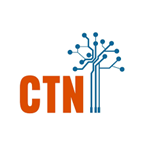OTAN News
Bridging the Digital Divide: A Global Perspective
Full article: https://communitytechnetwork.org/blog/bridging-the-digital-divide-a-global-perspective/
 Bridging the Digital Divide: A Global Perspective
Bridging the Digital Divide: A Global Perspective
This article published June 1, 2023, highlights some innovative strategies and initiatives from other countries around the world. Featured here are South Korea, Estonia, India & Uruguay. For more details, please link to the full article.
South Korea
South Korea “enhanced the overall digital ecosystem” in their country with “extensive investment in broadband infrastructure.” Digital inclusion is possible because of the “government’s commitment to providing affordable, high-speed internet access to all citizens, including those in rural areas.” In addition to integrating digital literacy into its national school curriculum, South Korea also offered “discounted internet plans through its Internet for All campaign.” With all of this in place, South Korea serves as a model case study.
Estonia
Estonia’s significant progress in establishing a “digital society” is a model for success. Digital innovation and Estonia are synonymous. How? The country’s “e-governance initiatives have streamlined public services, enabling citizens to conveniently access essential government services online.” With each citizen’s digital identity, Estonians can access “all their health and education records in one place online and even vote online in national elections.” These initiatives could only be successful with significant investment in internet infrastructure and digital literacy programming for all.
India
To bridge the digital divide, India “collaborated with device manufacturers and telecom operators in order to offer low-cost smartphones and subsidized data plans.” This has led to India’s Mobile Revolution. Also included in their revolution are initiatives to enhance digital infrastructure, a broadband network, connecting rural communities and country-wide digital literacy programs.
Uruguay
Uruguay’s commitment to providing equitable access to technology and education, through their One Laptop per Child (OLPC) initiative, received international recognition. Their promise to equitable access resulted in internet access for all public schools and a notebook computer for every student. As with all initiatives, challenges included integrating the “laptops into the curriculum and providing comprehensive teacher training.” However, with this dedication, Uruguay has “achieved significant milestones” within their public school system. Together these countries represent the complex and ongoing challenge of constructing initiatives which promote digital equity. Each demonstrates a sustained effort and continued investment in infrastructure and education.

